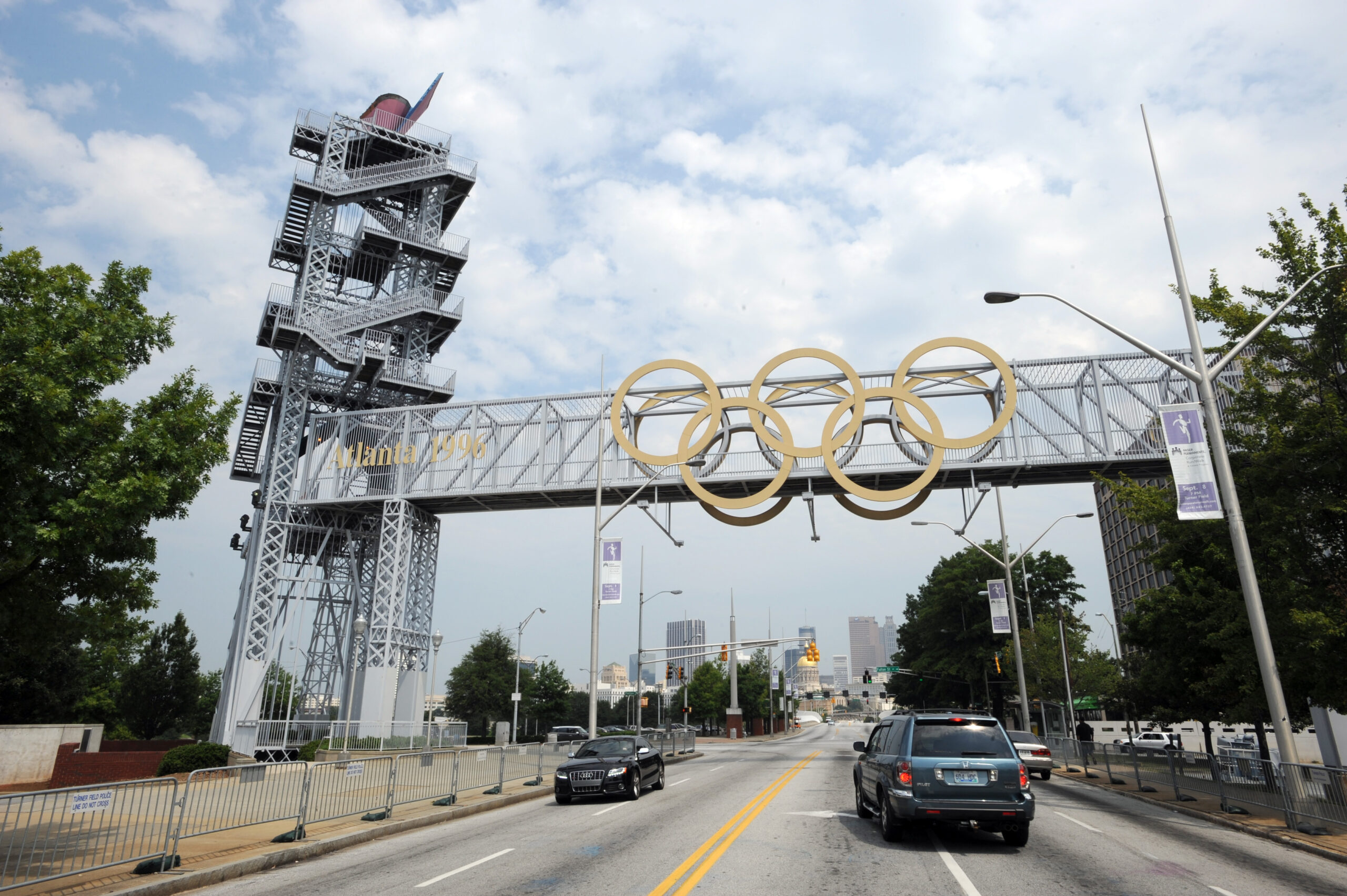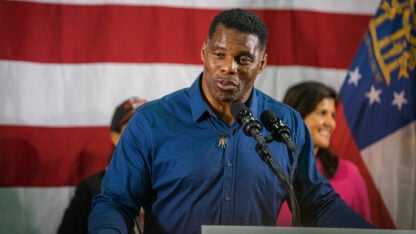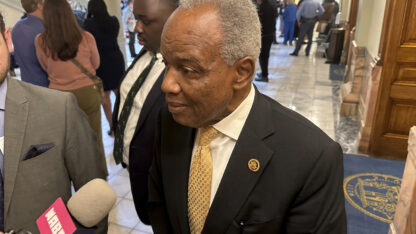On September 18, 1990, Atlanta was picked to host the 1996 Centennial Olympic Games, an event that many view as a turning point in the city’s trajectory. The Atlanta History Center’s new exhibition, “Atlanta ’96: Shaping an Olympic and Paralympic City,” opens on Friday to mark the occasion.
“City Lights” host Lois Reitzes spoke with curator Sarah Dylla to discuss what this show highlights.
The Atlanta History Center has long held exhibitions documenting the 1996 Olympics. This is because the Olympic Organizing Committee designated the Center as the repository for the collections, records and objects related to the games.
Instead of focusing on how the sporting events played out, this exhibition shifts the focus to the impact hosting the Olympics had on Atlanta.
“This is not a sports hall of fame. We want to look at the Olympics as this inherently urban project and how the Olympics really change a city and garner attention and create all kinds of ripple effects,” said Dylla.
To do that, the show presents the games within four different themes: Envisioning, campaigning, realizing and reflecting.
Envisioning highlights 11 leaders who played a role in making the games a reality for Atlanta. Subjects include athletes, disability rights advocates and artists, among others.
“We selected 11 to kind of capture the different facets that we wanted to make sure came across throughout this story,” said Dylla. “They are certainly not all politicians; the push to have the Olympics was something that was very much led by Atlanta’s city leaders and business community.”
The next section, campaigning, captures the story of Atlanta’s bid to host the games and how people sought to leverage the spotlight being a host would bring to the city.
Realizing tells the story of the physical manifestation of the games, from the building of venues to the public art made for the games.
“We talk about the park and the stadium in Summerhill, which was Centennial Olympic Stadium, and tell the story of those major sites of urban transformation and urban renewal efforts around Olympic-related construction,” said Dylla. “Those are interesting stories because they harken back to our effort to put this story in the longer context of the city and the longer push for change.”
The final theme is reflecting, which presents the costs and benefits of being an Olympic host.
One example: Atlanta going from a regional capital to an international city.
Dylla said the games had a huge impact on the city. She also notes that becoming the host of the Olympics was part of a natural progression of city leaders pushing Atlanta to become more for more than a century.
Dylla hopes that the exhibition allows visitors to “understand [the 1996 Olympics] as the massive civic undertaking that they were and yet another step in Atlanta’s quest for that increasing image, that increasing status, that name recognition.”






